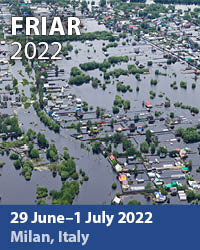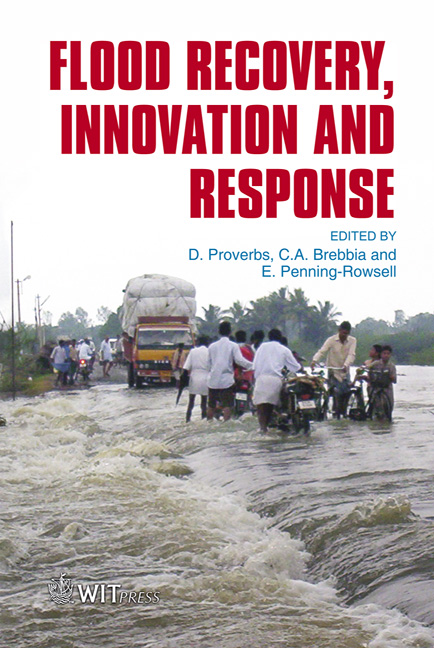Flood Insurance In The UK – A Survey Of The Experience Of Floodplain Residents
Price
Free (open access)
Transaction
Volume
118
Pages
10
Page Range
325 - 334
Published
2008
Size
340 kb
Paper DOI
10.2495/FRIAR080311
Copyright
WIT Press
Author(s)
J. E. Lamond & D. G. Proverbs
Abstract
Flood insurance, or the lack of it, is one of the factors that determine whether building on floodplains is sustainable. Availability of insurance can provide flood victims with the financial security to restore, maintain and sell their property but can also induce moral hazard increasing the eventual cost of flooding to the wider community. Flood cover in the UK has come under the spotlight in recent years following an increase in the frequency of flood events. The long-term gentlemen’s agreement between Government and the private insurance industry has been revised in the light of these events leaving many property owners in an ambiguous position as regards home insurance. The results of a survey of residents in and outside the floodplain reveal that despite recent changes in the policies of insurers they are in general providing insurance at reasonable rates to flood victims and to homeowners at risk of flood. However floodplain residents are experiencing a variety of difficulties in achieving cover and are pursuing a wider range of strategies to obtain cover. A minority of residents find their insurance compromised. The research concludes that the diverse and competitive market for insurance in the UK fulfils the short term need of the floodplain resident for cover but may not serve their best interests in the longer term. Keywords: competition, finance, flood, insurance, moral hazard, risk. 1 Introduction The management of buildings on the floodplain in a developed economy is a delicate balance between the needs of the floodplain residents and the wider population. Historic settlement patterns have placed a large part of the world
Keywords
competition, finance, flood, insurance, moral hazard, risk.





